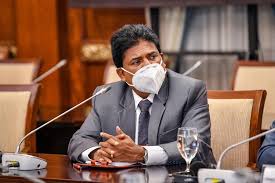Sri Lankan President Rajapaksa vows rights reforms; promises 'justice' for missing persons

- Country:
- Sri Lanka
President Gotabaya Rajapaksa said on Tuesday that Sri Lanka needs to ''correct the misconceptions'' of the international community on its human rights policies as he promised ''justice'' for missing persons from the three-decade-long civil war with the LTTE.
''We reject racism. The present government wants to safeguard the dignity and rights of every citizen in this country in a uniform manner,'' President Rajapaksa said while addressing a new session of Parliament.
''Therefore I urge those politicians who continue to incite people against each other for narrow political gains to stop doing so,'' he said.
Talking about human rights issues in the country, Rajapaksa said that he was willing to take suggestions from the international community on it.
''We need to correct the misconceptions that have been taken to the international community in the past regarding our human rights,” he said.
“I say with responsibility that during my tenure, the government did not support any form of human rights violations. We will also not leave room for any such act in the future. We do not condone such actions in any manner,” he added.
The Lankan government's reluctance to address or investigate human rights allegations from the civil war has been a source of tension in its ties with several Western countries.
President Rajapaksa, who so far sidestepped calls to investigate missing persons from the civil war, said that the issue is not something unique to a particular group.
''We will do maximum justice on behalf of all such persons,” he said.
According to the Lankan government figures, over 20,000 people are missing due to various conflicts including the three-decade separatist war with Lankan Tamils in the north and east which claimed at least 100,000 lives.
The Tamils alleged that thousands were massacred during the final stages of the war that ended in 2009 when the government forces killed Liberation Tigers of Tamil Eelam (LTTE) chief Velupillai Prabhakaran.
The Sri Lankan Army denies the charge, claiming it as a humanitarian operation to rid the Tamils of LTTE'’s control.
At the end of the civil war, the United Nations accused both sides of atrocities, especially during the conflict's final stages.
International rights groups claim at least 40,000 ethnic Tamil civilians were killed in the final stages of the war, but the government has disputed the figures.
Several mass graves containing skeletal remains have also been found, but only a handful have ever been identified.
In May 2021, the UN Human Rights Council adopted a strong resolution against Sri Lanka's rights record.
India, which abstained from voting, said its approach to the question of human rights in Sri Lanka is guided by two fundamental considerations - one is its support to the Tamils of Sri Lanka for equality, justice, dignity, and peace; the other is in ensuring the unity, stability and territorial integrity of Sri Lanka.
Sri Lanka was earlier defeated at three consecutive resolutions at the UN rights body when Gotabaya Rajapaksa’s elder brother and incumbent Prime Minister Mahinda Rajapaksa was the country's president between 2012 and 2014.
In 2015, the Maithripala Sirisena’s government had co-sponsored the UNHRC resolution and the action was described as a betrayal of Sri Lanka by Rajapaksa-led opposition then.
President Rajapaksa also said that his government has secured national security and the people have no fear of terrorism now.
''We are also preparing to make relevant amendments to the Prevention of Terrorism Act that had been in force since 1978,” he said.
He said the government has been able to change the situation concerning the underworld that terrorised people, during the past two years.
Rajapaksa further stated that Sri Lanka was becoming a hub for international drug traffickers and the situation today is largely under control due to the action taken by the security & intelligence services in the country.
He also promised to return over military-occupied lands from the civil war to their civilian owners.
''What we need now, however, is to set aside the dark memories of the past and build a secure country where all sections of the community can co-exist in peace. We must all unite for this purpose, irrespective of ethnic, religious, or political differences,” he added.
(This story has not been edited by Devdiscourse staff and is auto-generated from a syndicated feed.)
ALSO READ
World Bank projects Indian economy to grow at 7.5% in 2024
Adani Green Energy becomes India's first company with 10,000 MW renewable energy capacity
World Bank projects India's growth to reach 7.6% in FY 23-24
"Today's action painting the canvas of tomorrow...": India's top diplomat highlights Akshaya Patra initiative at UN
Adani Green Energy becomes India's first to surpass 10,000 MW renewable energy










